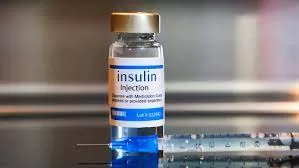A new meta-analysis of 17 randomized controlled trials suggests that hormone therapy (HT) can significantly reduce insulin resistance, particularly in postmenopausal women. The findings bring clarity to the previously mixed results surrounding hormone therapy’s impact on insulin regulation, highlighting its potential as a valuable tool for improving metabolic health in this population.
Dr. Xuezhi (Daniel) Jiang, the lead researcher from Reading Hospital Tower Health and Drexel University College of Medicine, Pennsylvania, emphasized that both oral and transdermal forms of hormone therapy were shown to reduce insulin resistance in healthy postmenopausal women. However, the study found that estrogen-alone therapy produced a more pronounced reduction in insulin resistance compared to combination hormone therapy.
“Menopausal women face an elevated risk of insulin resistance due to declining estrogen levels,” Dr. Jiang noted. “Our analysis confirms that hormone therapy offers a significant benefit in reducing insulin resistance among this group.”
The Link Between Estrogen and Insulin Resistance
Menopause brings about a sharp decline in estrogen, a hormone that plays a crucial role in regulating insulin sensitivity. Insulin resistance, which occurs when cells in the body become less responsive to insulin, can pave the way for serious health conditions, including prediabetes, type 2 diabetes, and metabolic disorders. While insulin resistance can affect both men and women, menopausal women are at greater risk due to these hormonal changes.
Dr. Stephanie Faubion, medical director of The Menopause Society, stressed the importance of these findings. “Hormone therapy is already known to be an effective treatment for many troublesome menopause symptoms, including hot flashes,” she said. “This new meta-analysis is critical as it highlights the additional benefit hormone therapy could have in reducing insulin resistance in postmenopausal women.”
Resolving Previous Uncertainties
Prior studies investigating the effects of hormone therapy on insulin resistance had produced inconsistent outcomes. Some studies suggested potential benefits, while others were inconclusive. However, this new meta-analysis provides robust evidence by consolidating data from 17 well-designed randomized controlled trials. The findings revealed that healthy postmenopausal women without metabolic diseases, such as diabetes, hypertension, or cardiovascular diseases, experienced significant reductions in insulin resistance with hormone therapy.
Implications for Menopausal Health
The findings underscore the role that hormone therapy could play in mitigating insulin resistance and reducing the risk of metabolic diseases in menopausal women. As prediabetes and type 2 diabetes are common concerns among aging populations, these results could encourage more focused discussions about the benefits and risks of hormone therapy in managing overall health during menopause.
While hormone therapy has been widely used to alleviate symptoms like hot flashes and night sweats, its potential to improve insulin sensitivity may offer an additional layer of benefit, especially for women looking to prevent long-term health complications related to metabolism.
Further research is needed to explore how hormone therapy can be optimized to balance the risks and benefits, particularly in women who may already be at risk for cardiovascular issues or other metabolic conditions.
Conclusion
As the body of evidence grows, hormone therapy could become a more widely considered option for addressing not just the symptoms of menopause, but also the increased risk of insulin resistance. The latest meta-analysis offers hope that women in this life stage may have more tools at their disposal to protect against metabolic disorders and improve their overall well-being.












